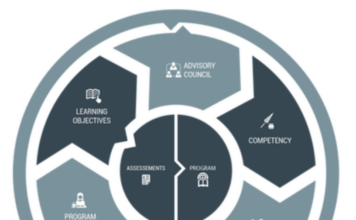Laptops in lectures
Pinchin, K. (2009) 'Can I have your half-attention, please?' On Campus Macleans.ca, Feb 06
An article about students bringing lap-tops to lectures, with research indicating...
Steam engines and IT: electronic note-taking (paper-based computing)
(This replaces an earlier post)
Hannon, C. (2008) Paper-based Computing EDUCAUSE Quarterly, Vol. 31. No. 4
This article looks at some of the issues arising from...
Community-Authored Resources for Education
Tinker, R., et al (2009) 'Community-Authored Resources for Education' Concord Consortium Newsletter, Winter
An analysis of the use of community-authored resources for science teaching. Quote:...
Using simulations to dig deeper in science teaching
Tinker, R. (2009) How can less be more? Concord Consortium Newsletter, Winter
A description of how the Molecular Workbench simulator can be used to allow...
Faculty ownership and control of digital course materials
Morgan, G. (2000) 'Faculty Ownership and Control of Digital Course Materials,' Teaching with Technology Today, vol. 5, no. 4
An excellent, authoritative account of...
European views on the present and future of e-learning
Bekic, Z. (2009) EQUIBELT Project Newsletter, No. 6
The goal of the EQIBELT project is to find the right way to integrate e-learning into the...
Facebook + Education = ?
Wong, M. (2009) Facebook + Education = ? UBC e-strategy Newsletter, February
An interesting article on the pros and cons of Facebook in education. See...
Database Walk – How UBC cleans up its digital catalogues
Drexhage, G. (2009) 'Database Walk - How UBC cleans up its digital catalogues' e-Strategy Newsletter, February
An artile on the 'digital cleaning' of the University...
Identity management at UBC
The e-strategy editorial board (2009) 'Unmasking your identity at UBC' UBC e-strategy Newsletter, February
A very clear description of the need for and benefits of...
Asynchronous and synchronous e-learning
Hrastinski, S. (2008) Asynchronous and synchronous e-learning EDUCAUSE Quarterly, vol. 31, no. 4 (October–December 2008)
A study of asynchronous and synchronous e-learning methods discovered that...





